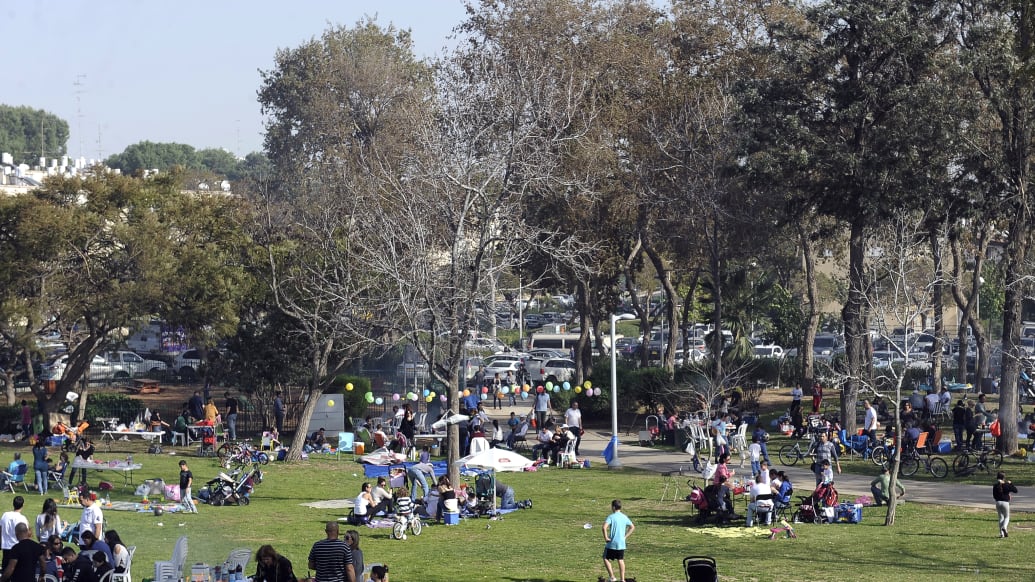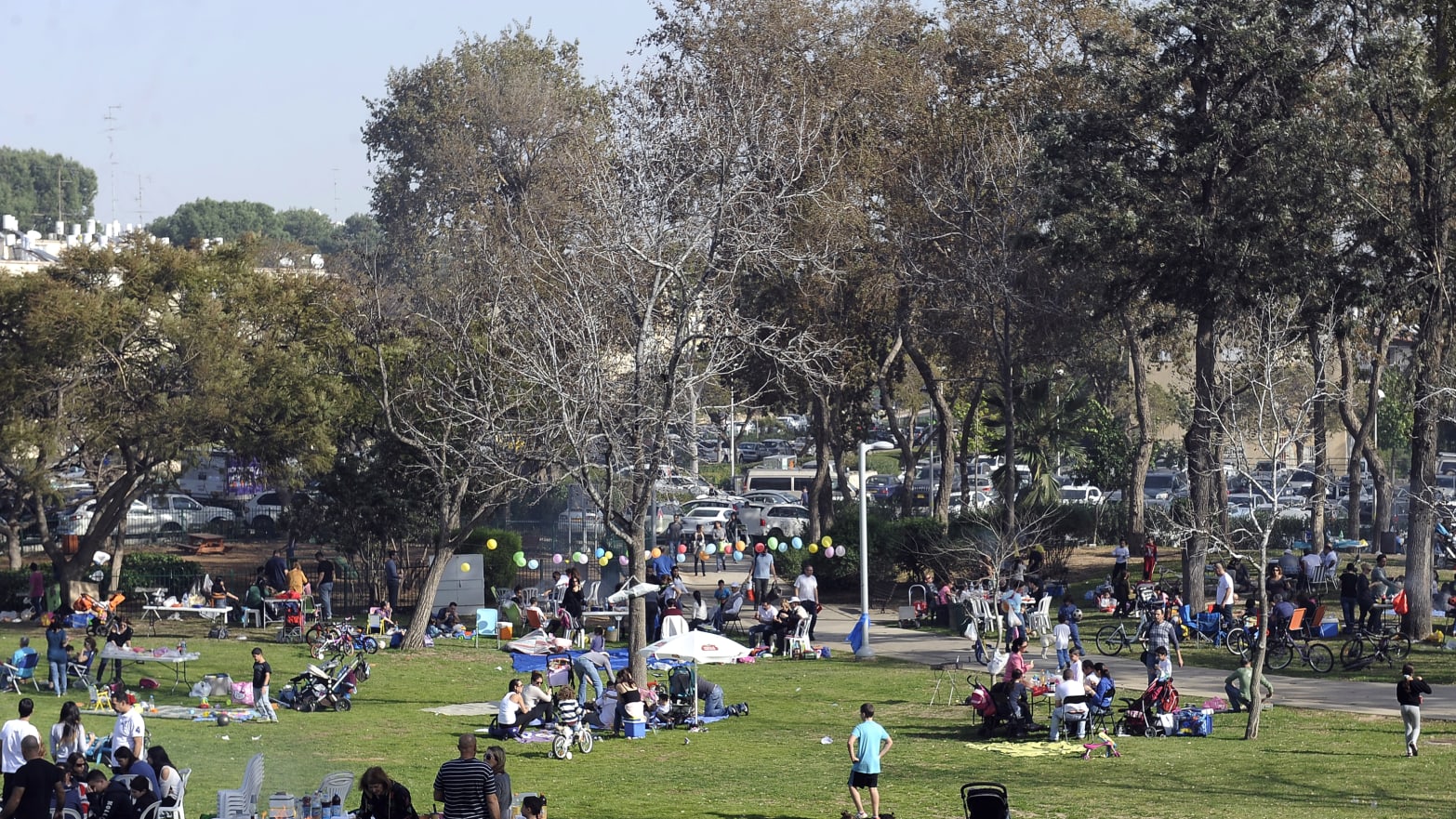Election Day is a holiday in Israel. Coming once every four years—or whenever the government falls—it is a particular blessing to a people who lack a “Sunday” and who lack those delicious three-day holidays with no religious obligations which lighten the American calendar. Especially for traditional Jews whose Sabbaths and holidays are busy and filled with restrictions—as meaningful as they might be—today was a guilt-free, obligation-light, day off. As a result, Jerusalem’s Old City and other sites were jammed. Malls were mobbed. The smell of barbecue wafted through the air of an absolutely beautiful, spring-like midwinter day. And millions of Israelis just had fun.

Along the way, millions of Israelis voted—an estimated 70 percent of the electorate. The voting booths are deliciously old-fashioned. I entered a small, cramped room at a technical college. Three people sat at a desk, to check my identity card and hand me an envelope. All the talk about the mess with voting cards not being sent out did not matter because all you needed was to type your identity number into a website, find your voting location, and show your id. The officials’ warm smiles and friendly demeanor evoked romantic New England. But the primitive conditions, cardboard signs, and just a whiff of officiousness as they sat in their temporary positions of authority also telegraphed “Politburo.”
After getting your envelope you stand behind a cardboard divider, bathed in blue and white colors, and face 34 piles of cards with letters stamped on them. Each party has its own slip with a one, two, or three letter code. You pick a ballot slip, put it in the envelope, exit from behind the divider and drop your envelope in another blue and white ballot box. This is the setting for that great picture that makes the round after every Israeli election, of an Arab woman, dressed modestly, dropping a ballot into the ballot box, asserting her power as an Israeli citizen. Point-scoring in the propaganda wars aside, participating in democratic elections, anywhere, anytime, is exciting, meaningful, empowering—it certainly was for me.
For me, this Election Day had a trajectory that captures what many Israelis experienced. My first conversations this morning centered around our common frustration—left and right—that few of the people I know liked any of the parties or candidates. For weeks I have been saying that I sought the politician least likely to disappoint me and many have nodded empathetically in response. I expected a fun time with my kids—but a sobering day for Israel.
Around noon, my lunch partner brightened my mood. He said how excited he was to vote, and we whipped ourselves into a patriotic frenzy celebrating the joys of democracy. This conversation brightened my mood, which was further brightened by the absolutely glorious weather.
In the evening, in the supermarket, I bumped into one of my most leftist friends, a founder of Peace Now and other liberal initiatives. Reports of heavy turnouts in Tel Aviv and other liberal environs, and a light-turnout in Likud strongholds thrilled her. She had waited half an hour in Tel Aviv to vote. She predicted a big win for Yair Lapid’s Yesh Atid. I said, “They are even talking seven seats for Meretz.” She predicted ten—and said, “Everyone grumbles that the left cannot pull it together, we’re going to prove them wrong.” I added: “And everyone abroad is busy calling it ‘Bibi’s Israel,’ when the country is much more complicated—it’s as ridiculous as having called it ‘Bush’s America,’ then being shocked when it suddenly had to be called ‘Obama’s America.’” Having satisfied each other with our supermarket punditry, she returned to Tel Aviv, I went to vote.
By ten-thirty Israel time, when I started watching the electoral returns, my mood and apparently the country’s improved further. Surprising the pollsters is one of the great democratic thrills in the overly-predictable modern world, and Lapid’s great success generated a broader euphoria. It allowed many of the parties to declare themselves the winners, leading to victory speeches from Shas, Labor, Yesh Atid, and HaBayit HaYehudi, as well as Likud, because despite his disappointment and weakened state Bibi Netanyahu has the most votes and will get the first presidential call to form a coalition.
We will spend weeks speculating now about the coalition possibilities and debating what accounted for the double Lapid victory—first his emergence and then his burst from polling 10 to 12 mandates to getting fifty percent more than that. But love him or hate him, be you a winner or loser this Election Day, we saw, on this peaceful, glorious, remarkably functional, impressively majestic day, that democracy works, that the people’s votes count and that most Israelis want constructive, moral leadership and change.

